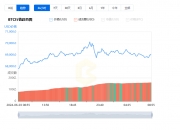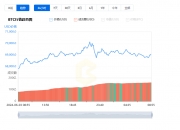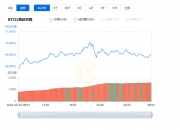在信息技术发展的过程中,传输带宽起着决定性的作用。从纯文本到多媒体,信息的展示方式日趋丰富。而5G的到来,为信息的三维化呈现及交互提供了更多可能,而全景内容恰恰是虚拟现实(VR))的技术能力,从而在元宇宙中占据了重要的地位。
Transferwidth plays a decisive role in the development of information technology. From pure text to multimedia, information is being presented in an increasingly rich way. And the arrival of 5G offers more possibilities for the three-dimensional presentation and interaction of information, and the panorama is precisely the technical capability of virtual reality (VR), thus gaining an important place in the meta-cosm.

早在1935年,一本科幻小说首次描述了一种特殊的眼镜,囊括了视觉、触觉、嗅觉等能力,最早描述了虚拟现实的概念。电影界在1962年诞生了一种仿真模拟器,相当于VR原型机,而第一款商业化的VR产品Eyephone是在1984年于美国上市的。在1990年之后,VR技术在游戏领域找到了落地场景,大名鼎鼎的任天堂就是这个领域的先驱,但直到oculus的出现,才真正将VR带入了普通大众的视野。2016年以后,尤其是元宇宙概念的提出,VR 技术引起了越来越多的关注。
As early as 1935, a science fiction novel first described a special pair of glasses, encompassing visual, tactile, smelly, etc. The concept of virtual reality was first described. The film industry produced a simulation simulator in 1962, equivalent to the VR prototype, while the commercial VR product, Eyephone, was marketed in the United States in 1984. After 1990, VR technology found a scene in the field of games, and the great Nintendo was a pioneer in this field, but it did not really bring VR into the eyes of the general public until the advent of oculus.
与VR 相关的技术还有AR 和全息投影, 它们之间有什么区别和联系呢?
The technology associated with VR and AR and holograms, what's the difference and connection between them?
VR是计算机生成的虚拟环境,是在很大程度上隔离了物理环境的封闭式体验。而AR则是用户直接或间接地观察真实的物理场景,数字元素直接叠加在目标的对象或背景上。对于全息投影而言,它是通过光的干涉和衍射再现三维图像的技术,核心是使用哪一种介质成像以及捕捉光作用的能力。
VR is a virtual computer-generated environment, a closed experience that largely isolates the physical environment. AR is a user’s direct or indirect observation of real physical scenes, with digital elements directly added to the target or background. For holograms, it is a technology for reproducing three-dimensional images by interference with light and diffusing, at the core of which medium imaging is used, as well as the ability to capture light.

基于VR 技术的应用有三个核心指标,即沉浸感、流畅度和可交互性。
The application of VR-based technologies has three core indicators, namely immersion, fluidity and interactivity.
沉浸感是VR技术的主要特征,VR对现实的模拟主要集中在视觉技术上,如何得到三维空间的视觉感官,是沉浸感的关键,视野范围和屏幕的刷新率是影响沉浸感的核心指标。
Absorption is the main feature of VR technology, and VR simulations of reality are focused on visual technology, how to get a visual sense of three-dimensional space, which is key to immersion, and the range of visions and the rejuvenation rate of the screen is the core indicator of the impact of immersion.
流畅度决定了沉浸感能否持续,带宽和网络丢包率是流畅度的核心指标。
Fluidity determines the sustainability of the immersion, and bandwidth and network drop rates are the core indicators of fluidity.
可交互性决定了沉浸感能否长久,反映了环境对于操作交互的反馈程度,动作延迟是可交互性的核心指标。
Interactivity determines the durability of the immersion, reflecting the level of environmental feedback on the interaction of operations, and delay in movement is a core indicator of interactivity.
与其他智能硬件的产业链类似,VR技术同样包括硬件、软件、内容和应用等环节,本质是VR内容的生产和消费,核心技术是三维成像,多人交互和云端渲染。
Similar to the industrial chain of other intelligent hardware, VR technology, which includes hardware, software, content and applications, is essentially the production and consumption of VR content, with the core technology being 3D imaging, multi-person interaction and cloud rendering.
三维成像集中在算法层面,包括三维重建、GPU加速、背景处理、光学技术以及同步定位的算法等。多人交互才会形成平行的数字世界,才会产生某种意义上的元宇宙,包括状态同步、视觉/语音交互、数据的不可篡改、智能导航等等。而云端渲染则提醒了后台处理的一些特殊性,例如分布式容器和边缘计算,高效传输和流化技术,等等。
Three-dimensional imaging is concentrated at the algorithmic level, including three-dimensional reconstruction, GPU acceleration, background processing, optical technology, and simultaneous positioning algorithms. Many people interact to form parallel digital worlds, creating a metacosystem in some sense, including state synchronization, visual/sound interaction, data indeterminate, intelligent navigation, and so on.

VR 技术面临的主要挑战包括电池技术、近眼显示技术和感知交互技术。
The main challenges for VR technology include battery technology, near-eye display technology and sensory interactive technology.
电池技术是所有便携式设备的约束,基于VR的应用多采用头盔的方式,同样不可避免。
Battery technology is binding on all portable equipment, as is the use of helmets for VR-based applications.
近眼显示技术决定了眩晕感和视野等用户体验,从PPI来看,近眼显示屏要达到2000PPI相当于手机上300PPI 的体验,从而很难有显示屏能够达到这样的分辨率和像素密度,也难以具备对这样的视频进行解码和传输的计算能力。
Near-eye shows that technology determines user experiences such as dizziness and vision, and from the PPI, near-eye displays are expected to reach the 2000 PPI equivalent of 300 PPI on a mobile phone, making it difficult for the screen to achieve such resolution and pixel density, as well as the ability to decode and transmit such videos.
感知交互是另一大难题,包括同步定位、手势/语音交互技术等。同步定位是指如何精准建立时空对应关系,一般采用摄像头矩阵为主,光学定位器为辅的方式。手势可以是裸手交互或者辅助手柄,或者其他类型的传感器,难点都在于算法的精度。
Awareness interaction is another major difficulty, including synchronization, gesture/speak interactive techniques. Synchronization refers to how to accurately create space-time correspondence, typically using a camera matrix, supported by optical locators. Hand gestures can be naked interactive or auxiliary handles, or other types of sensors, and the difficulty lies in the accuracy of algorithms.
VR技术是信息三维化的重要载体,同样经历着螺旋式上升的过程,随着今年元宇宙概念的兴起,又一次出现在了人们的视野,前景拭目以待。
VR technology, which is an important vehicle for information tridimensionalization, is also experiencing a spiral-up process that, with the rise of the meta-cosm concept this year, is once again taking place in the eyes of the people and waiting for the future.
注册有任何问题请添加 微信:MVIP619 拉你进入群

打开微信扫一扫
添加客服
进入交流群




















发表评论